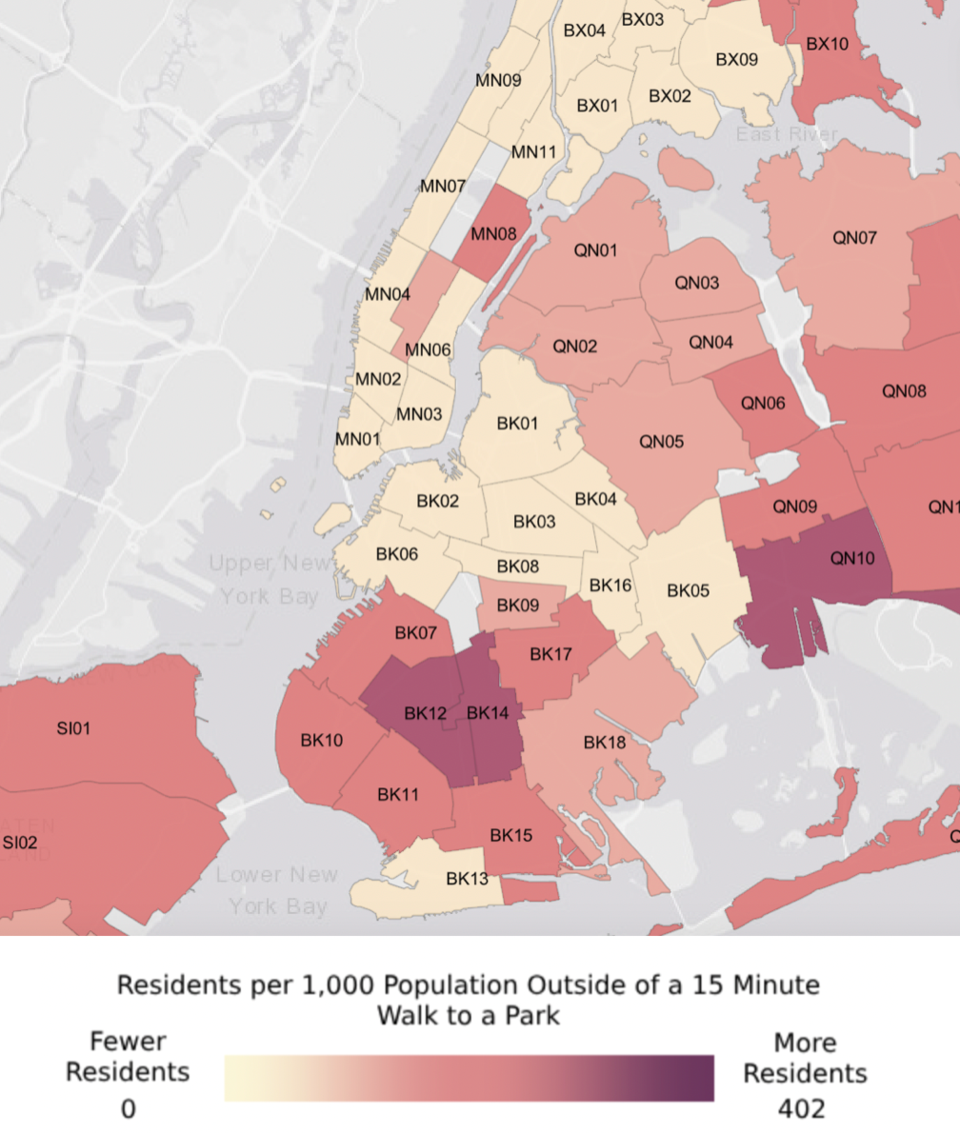A new audit and report from New York City Comptroller Brad Lander found that New York City unevenly distributes city facilities. By keeping critical data on the concentration of services in neighborhoods unavailable, the City has failed to produce mandated analyses of neighborhood impact.
Adopted in the 1989 City Charter Revision, “Fair Share” provisions require the City to make a concerted effort to ensure that communities are both getting their fair share of amenities like parks and libraries and doing their fair share to confront citywide problems like homelessness. When facilities are unevenly distributed, racial and economic disparities can become more intense.
“New York City’s wellbeing rests upon an extensive array of municipal services that should be sited equitably, but our office found that it fails to live up to its ‘Fair Share’ obligations, said Lander. “Some neighborhoods have far more than their share of homeless shelters and waste transfer sites, and the differences are often along lines of race and income. As we tackle issues from housing affordability to climate change while building a compassionate and inclusive city, the City’s siting decisions cannot be driven by not-in-my-backyard politics and path-of-least-resistance planning, which solidifies and deepens racial and economic disparities.”
The Comptroller’s Office review consisted of both an audit of Fair Share statements over the past five years, and a geospatial analysis of a wide range of City facilities.
The audit analyzed 170 Fair Share statements with city facilities that will be run through contracts with private providers, such as homeless shelters. Of the 170 Article 9 statements, 166 were for Department of Homeless Services facilities. Auditors found that agencies did not adequately consider that some neighborhoods have a disproportionate number of residential facilities. Homeless shelters are heavily concentrated with some communities taking on 100 times more shelter beds than others. Three out of four community districts that have no shelters are predominately white.
To evaluate the current makeup of facilities across the city, the Comptroller’s office also took a wider view of Fair Share through a geospatial analysis. The analysis found that three facility types are generally distributed fairly, childcare and early childhood education facilities, fire stations and police precincts. Four facility types are distributed unfairly: parks, waste transfer sites, homeless shelters and social services (including mental health centers and substance use disorder treatment programs). Social services, such as mental health centers and substance use treatment programs, are much more likely to be in neighborhoods with a higher percentage of people living below the poverty line.
Waste transfer sites with high volume of truck traffic, greenhouse gas emissions, particulate matter, and noise are more likely to be in communities with a higher percentage of people living below the poverty line. 73% of the total capacity for waste disposal is allocated to stations in five community districts in Brooklyn, Staten Island, and the South Bronx.
“Fairness must be embedded in how we build our city, share opportunities, and rise to challenges," Comptroller Lander said. "That begins with a commitment to basic public transparency, which the City has long ignored. Failing to attend to fairness and transparency erodes public trust and makes it harder to meet our collective needs.”
Based on its review, the Comptroller’s Office recommends that the City:
- Establish clear, centralized City oversight over Fair Share compliance
- Improve and regularly update the Fair Share Criteria, including the BTP ratio
- Improve public access to information on sitings, facility capacity, and concentration
- Reform the Citywide Statement of Needs
- Prohibit unfair sitings in oversaturated districts
- Clarify that Fair Share should be applied to City facilities sited through emergency procurement.




